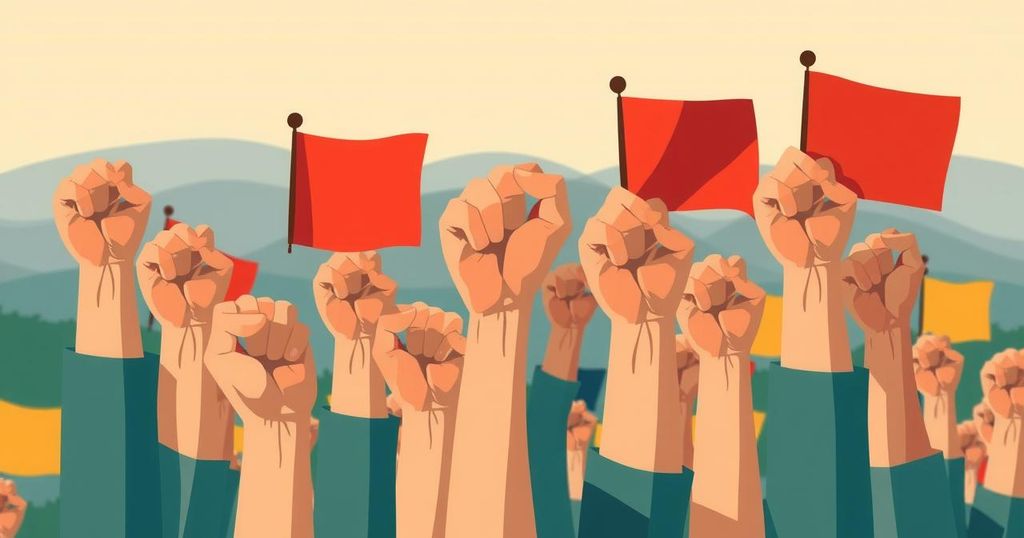Protests Erupt in Mauritius Over Chagos Islands Sovereignty Issue
Protests in Mauritius focus on reclaiming the Chagos Islands from British control. Activists demand an end to colonial rule, asserting historical claims and cultural rights. The situation highlights ongoing territorial disputes and the push for justice and sovereignty.
In a significant turn of events, demonstrations took place in Mauritius over the controversial British administration of the Chagos Islands. The protests were aimed at the British government’s historical and ongoing claims over the islands, which have been a point of contention since the 1960s. Activists gathered near the British High Commission, urging the end of what they describe as colonial occupation, advocating instead for the islands’ full return to Mauritius.
The unrest is rooted in the past, when the United Kingdom separated the islands from Mauritius, creating a military base on Diego Garcia, the largest island in the archipelago. Many Mauritians view the separation as unconstitutional and a violation of their territorial integrity. Demonstrators carried signs calling for the recognition of their sovereignty, emphasizing that Chagos Islands rightfully belong to Mauritius.
Mauritian officials have been vocal, with Prime Minister Pravind Jugnauth asserting the island nation’s claim over Chagos. The protests are part of an ongoing effort to reclaim the territory, which they emphasize is not just a matter of land but also of cultural identity and historical justice.
This demonstration forms part of broader global efforts advocating for the end of colonial legacies and reparations. The Mauritian government’s stance has garnered international attention, reflecting a growing movement among nations once subjected to colonial rule, now seeking restitution. Human rights groups also support Mauritius in their fight for the return of these islands, citing international laws on self-determination.
Authorities and political figures within the protestors’ ranks have voiced concerns that the British presence in Chagos continues to violate the rights of those who once called the islands home. The protests are expected to escalate if diplomatic channels remain unproductive. The situation underscores a complex web of legal and historical disputes playing out in international courts and diplomatic discussions.
With the Chagos Islands issue still unresolved, this recent protest highlights the resilience of the Mauritian people in their quest for justice and sovereignty. Mauritian citizens are determined to keep the issue alive in political discussions both at home and abroad, pushing for a resolution that affirms their claims over the islands.
As the situation develops, activists and officials alike emphasize the necessity of dialogue to resolve the colonial dispute, but the future remains uncertain. Mauritian claims may hinge on increased international scrutiny and pressure on Britain as questions of sovereignty and reparative measures continue to take center stage.
In summary, protests in Mauritius signal a renewed commitment to reclaim the Chagos Islands from British control. These demonstrations not only reflect grievances about colonial histories but also broader themes of self-determination and justice. As Mauritian officials assert their claims, the urgency of addressing such historical injustices reaches a critical point for both current generations and future dialogue.
Original Source: www.ncnewsonline.com




Post Comment